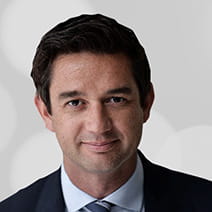With an economic backdrop of high inflation, slowing economic growth and now sharply higher interest and mortgage rates, the stock market is a tough place. But within the wreckage, there is value emerging in a small group of exceptional companies that we call Innovative Global Leaders.
These Innovative Global Leaders are best-in-class companies that continually innovate to stay at the top of their game. Crucially right now, they are likely to prove resilient and adaptable in the face of a likely oncoming recession. Many of the companies also offer exceptional potential value for long-term investors because their stock prices have already fallen significantly this year.
At this point you might be thinking: what about inflation? Does inflation derail innovation? The answer is absolutely not. We often encounter the misperception that innovation is all about technology; it isn’t. It’s about driving down prices for customers. And this is even more important when, just like right now, we are in a cost-of-living crisis.
One excellent example in the US is Planet Fitness – the “Aldi of US gyms” – which has driven down the price of gym memberships by 80%. You might today be weighing up your Virgin active membership at £100 a month against a Gym Group membership at £30 a month. And that would be a pretty good saving. But Planet Fitness is just $10 a month.
Another example, with which many of us are familiar, is Costco, a fantastically innovative company on account of its business model despite its resolutely low-tech approach. I made my monthly visit there last week and it was full of shoppers. It has experienced a surge in demand because if you want the lowest prices you go to Costco, and more and more of us are doing this than ever. So inflation doesn’t derail innovation, far from it. It drives innovation and this is what we’re seeing right now.
It is important to remember that not every great innovation is a great investment. To find the best investments we always look for four things in a company. First, no surprises, is innovation; which for us means driving down prices for customers or driving better value for money.
Second, are barriers to competition. If everybody can replicate it, nobody makes any money. We see this time and time again. Look at Peloton: a great innovation but now flooded with competition. So we need to see barriers like intellectual property, scale advantages or long-established brands. Third, is very simple: good management. For us this means both vision and execution. And fourth, we need to see hard evidence of innovation converting into cash for us in the form of good returns on invested capital.
One new investment we have made in the Liontrust Global Dividend Fund is Universal Music Group, the largest recorded music company in the world. Discovering new artists, distributing them and keeping them happy is key to dominating a market in which content is everything. Taylor Swift, Justin Bieber and Drake are just three of the artists whose recordings Universal holds the rights to.
Universal has a leading 31.2% market share of the $26 billion recorded music market (around 10% above the number two player) giving it unparalleled economies of scale. Moreover, unlike the sale of a CD, for which Universal would pocket around a third of the retail price, streaming via a platform such as Spotify earns Universal revenue every single time one of their artists get played. As music streaming grows so does Universal’s earnings power and our dividends.
Another recent investment, and closer to home, is British company Diploma, which has an exceptional track record of compounding shareholder returns at 27% for the past decade. Yielding under 2% yet growing its dividend at 14% CAGR (Compound Annual Growth Rate), Diploma epitomises the type of innovative companies in which we invest the Liontrust Global Dividend fund. The company distributes essential products to industrial and healthcare companies (controls, seals, consumables for life sciences and diagnostic instruments), which are typically sourced from niche manufacturers and achieves high and stable ROIC (Return on Invested Capital) with its capital light business model. Very rarely do you get these companies on sale.
As we enter a more challenging economic environment with high inflation, the Innovative Global Leaders in which we invest through the Liontrust Global Dividend have the quality to weather the storm. And with shares having de-rated significantly since the start of the year, we see these companies having the potential to generate exceptional long-term returns.
KEY RISKS
Past performance is not a guide to future performance. The value of an investment and the income generated from it can fall as well as rise and is not guaranteed. You may get back less than you originally invested.
The issue of units/shares in Liontrust Funds may be subject to an initial charge, which will have an impact on the realisable value of the investment, particularly in the short term. Investments should always be considered as long term.
Investment in funds managed by the Global Innovation (GI) team may involve foreign currencies and may be subject to fluctuations due to movements in exchange rates. The team may invest in emerging markets/soft currencies or in financial derivative instruments, both of which may have the effect of increasing volatility.
DISCLAIMER
This is a marketing communication. Before making an investment, you should read the relevant Prospectus and the Key Investor Information Document (KIID), which provide full product details including investment charges and risks. These documents can be obtained, free of charge, from www.liontrust.co.uk or direct from Liontrust. Always research your own investments. If you are not a professional investor please consult a regulated financial adviser regarding the suitability of such an investment for you and your personal circumstances.
This should not be construed as advice for investment in any product or security mentioned, an offer to buy or sell units/shares of Funds mentioned, or a solicitation to purchase securities in any company or investment product. Examples of stocks are provided for general information only to demonstrate our investment philosophy. The investment being promoted is for units in a fund, not directly in the underlying assets. It contains information and analysis that is believed to be accurate at the time of publication, but is subject to change without notice. Whilst care has been taken in compiling the content of this document, no representation or warranty, express or implied, is made by Liontrust as to its accuracy or completeness, including for external sources (which may have been used) which have not been verified. It should not be copied, forwarded, reproduced, divulged or otherwise distributed in any form whether by way of fax, email, oral or otherwise, in whole or in part without the express and prior written consent of Liontrust.











